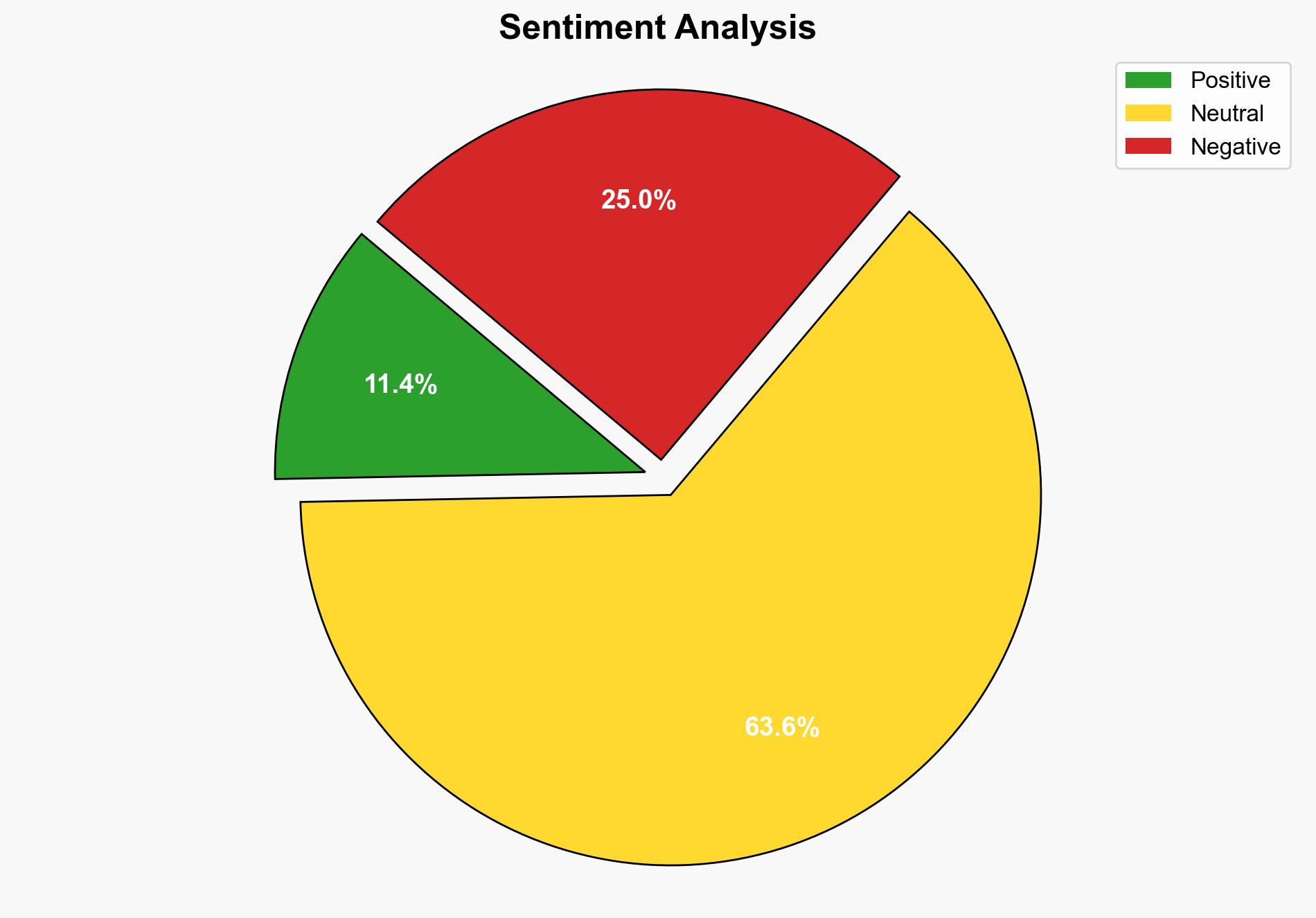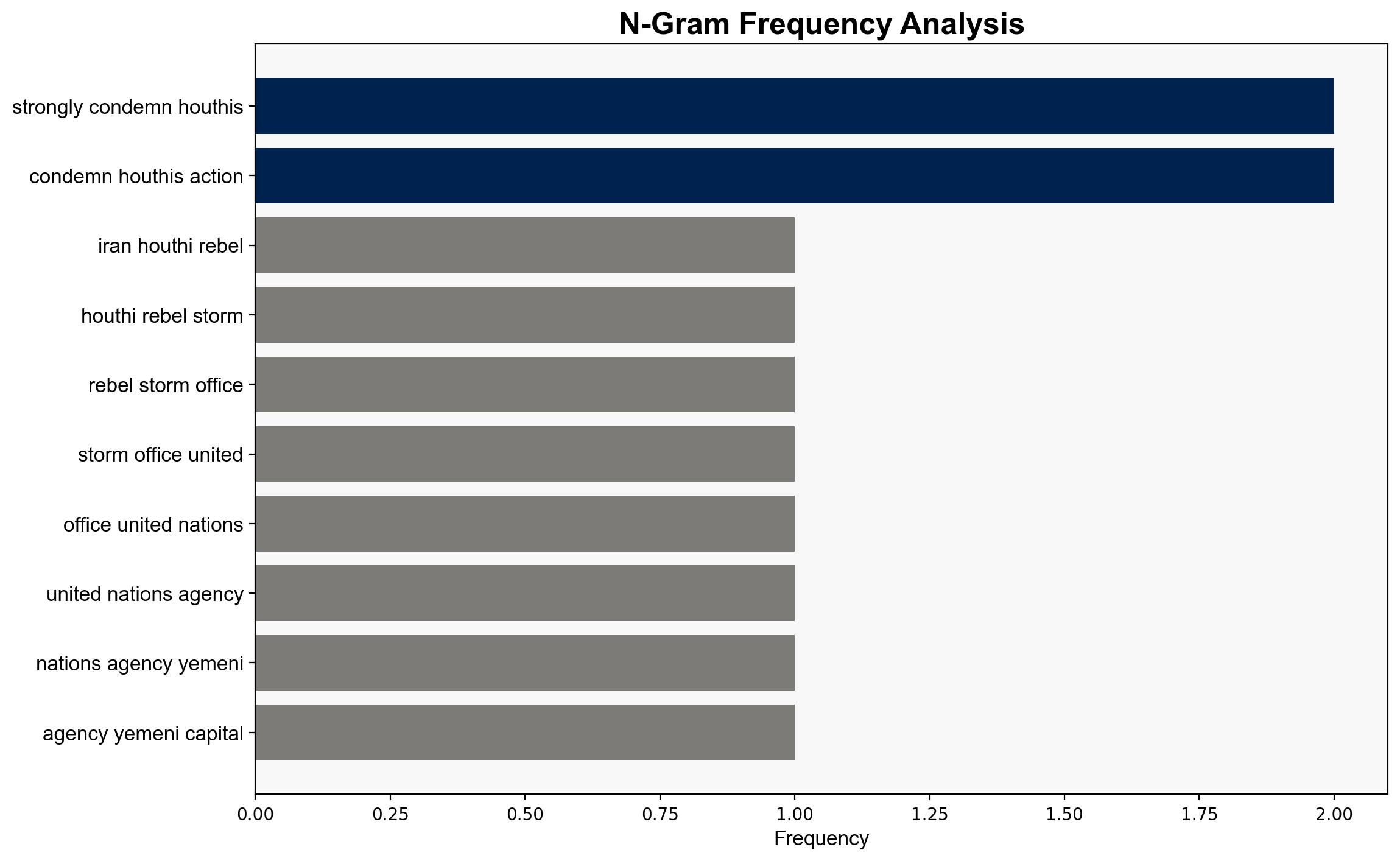Houthis storm UN building in Yemeni capital after Israel killed PM and other ministers – CNN
Published on: 2025-08-31
Intelligence Report: Houthis storm UN building in Yemeni capital after Israel killed PM and other ministers – CNN
1. BLUF (Bottom Line Up Front)
The most supported hypothesis is that the Houthis stormed the UN building in response to Israel’s assassination of their Prime Minister, Ahmed Al Rahawi, as part of a broader retaliatory strategy. This is supported by historical patterns of Houthi responses to perceived external aggression. Confidence level: Moderate. Recommended action: Increase diplomatic engagement and pressure on regional actors to de-escalate tensions.
2. Competing Hypotheses
1. **Hypothesis A:** The Houthis stormed the UN building as a direct retaliation against Israel’s killing of their Prime Minister, aiming to demonstrate their capacity to respond to international provocations.
– **Supporting Evidence:** The timing of the storming closely follows the assassination, and the Houthis have a history of retaliatory actions.
2. **Hypothesis B:** The storming of the UN building was part of a broader strategy to undermine international organizations in Yemen, irrespective of the Israeli actions, to consolidate power and control narratives.
– **Supporting Evidence:** Previous instances of Houthi actions against international entities and the strategic advantage of controlling narratives within Yemen.
Using ACH 2.0, Hypothesis A is better supported due to the direct correlation in timing and historical precedent of retaliatory actions by the Houthis.
3. Key Assumptions and Red Flags
– **Assumptions:** It is assumed that the Houthis have the capability and intent to retaliate against international actors. It is also assumed that the Israeli strike was the primary catalyst for the storming.
– **Red Flags:** Lack of direct evidence linking the storming to the Israeli strike; potential bias in interpreting Houthi motivations solely as retaliatory.
– **Blind Spots:** The internal dynamics within the Houthi leadership that might influence decision-making are not fully understood.
4. Implications and Strategic Risks
– **Escalation Risk:** Increased likelihood of further retaliatory actions by the Houthis against international entities or regional actors.
– **Geopolitical Impact:** Potential for increased tensions between Iran and Israel, given Iran’s support for the Houthis.
– **Humanitarian Concerns:** Disruption of UN operations could exacerbate the humanitarian crisis in Yemen.
5. Recommendations and Outlook
- Engage in diplomatic efforts to de-escalate tensions between Israel and the Houthis, possibly through intermediaries.
- Enhance security measures for international organizations operating in Yemen.
- Scenario Projections:
- Best Case: Successful diplomatic intervention leads to de-escalation and resumption of UN operations.
- Worst Case: Escalation leads to broader regional conflict involving Iran and Israel.
- Most Likely: Continued low-level retaliatory actions by the Houthis, with intermittent disruptions to international operations.
6. Key Individuals and Entities
– Ahmed Al Rahawi (Houthi Prime Minister)
– Benjamin Netanyahu (Israeli Prime Minister)
– Hans Grundberg (UN Special Envoy for Yemen)
– António Guterres (UN Secretary-General)
7. Thematic Tags
national security threats, regional focus, geopolitical tensions, humanitarian impact





